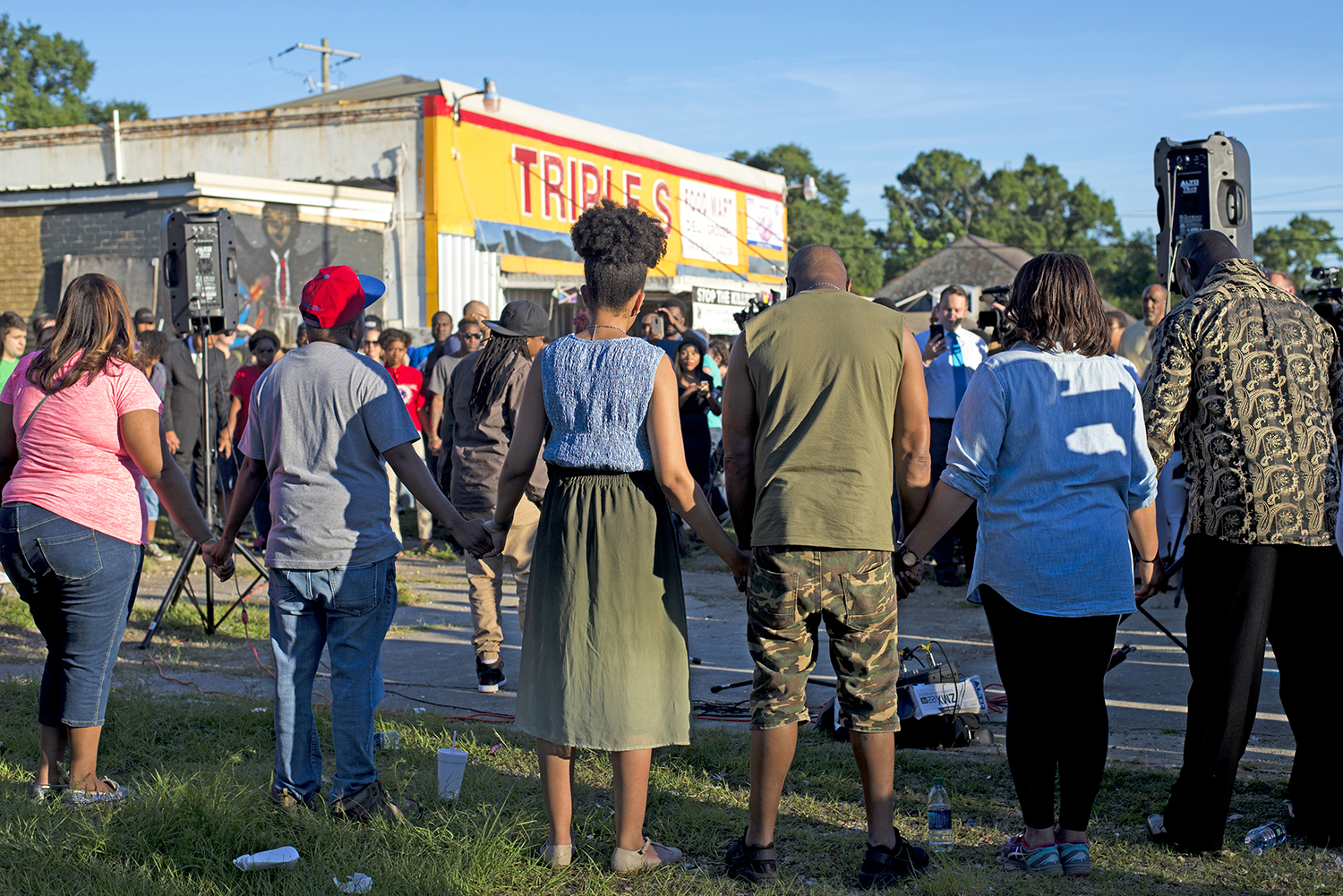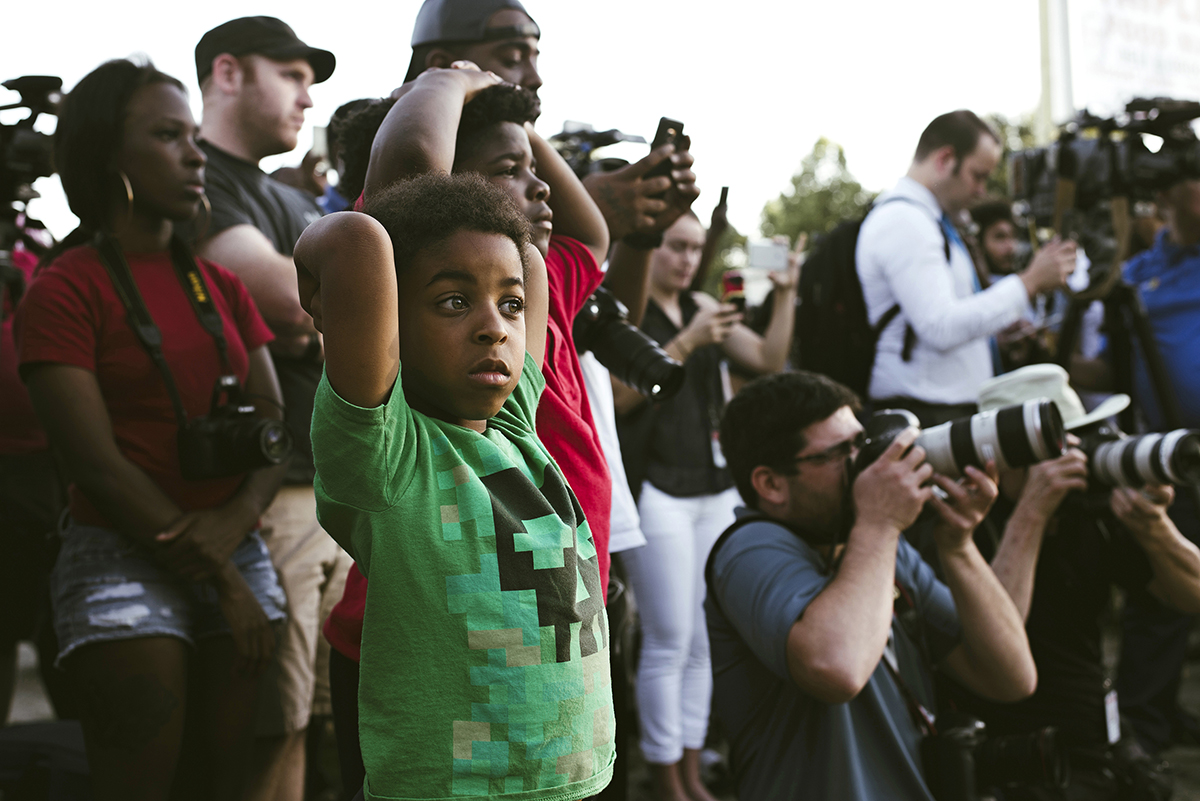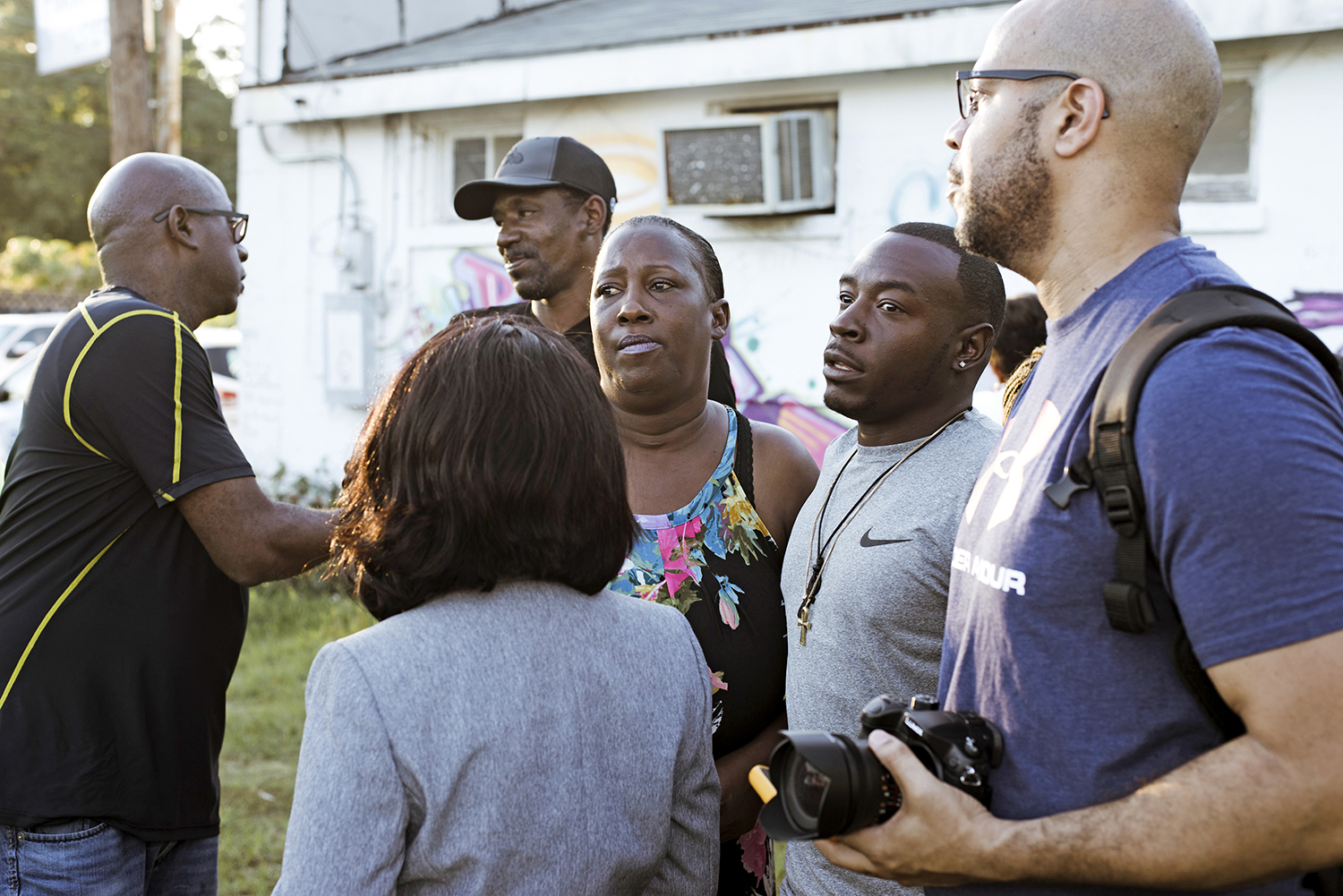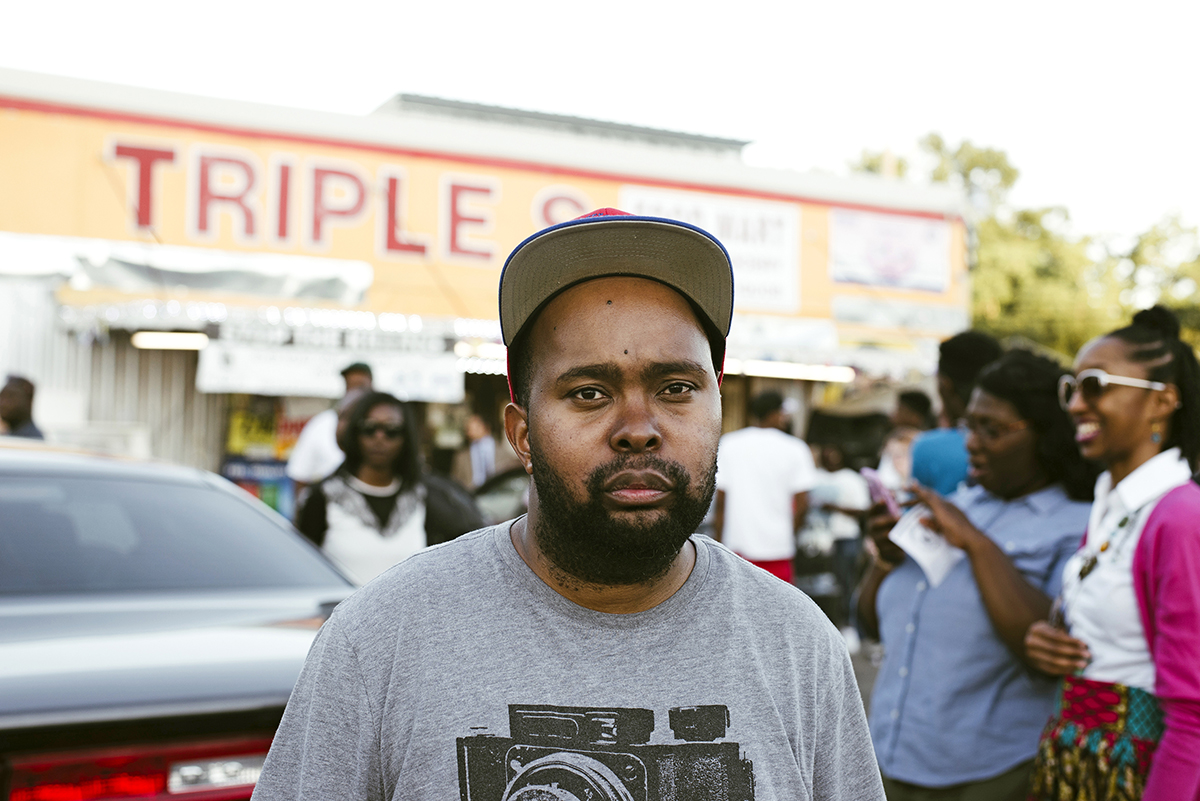
Seeking justice
The night before the Alton Sterling verdict is released, friends and family hold a vigil in his memory
The air around Triple S Food Mart is crackling with a strange electricity. It’s Tuesday, May 2, and the Washington Post has just reported that the Department of Justice will not bring charges against the officers who killed Alton Sterling. The news is fresh; the DOJ still has not even given official notification to Gov. John Bel Edwards, Mayor Sharon Weston Broome or Sterling’s family.
The decision didn’t come as a shock to many of the people gathered in the Triple S parking lot for an evening vigil in Sterling’s memory, but that doesn’t make it any less painful for them. Co-organizer Myra Richardson, 18, has gathered friends, family, activists and observers into a circle around a microphone, where a long line of voices from the community remembers Sterling, the events of his death and now a ruling that, for them, feels nothing like closure.

Directly across from the microphone is a bank of cameras and recorders, reporters in ties and slacks from local and national outlets alike. Many vigil attendees stare down their lenses in disdain. The national media has already been quick to broadcast rumors of impending riots—much quicker than they were last August when the same city flooded and many of the same people were washed out of their homes.
|
|
First up to the microphone is EmpowerBR director Shaena Johnson, long braids spilling out from under her cap. When she speaks, the crowd echoes her in unison.
“It is our duty to fight for our freedom,” she says, and the crowd calls it back to her. “It is our duty to win. We must love and protect each other. We have nothing to lose but our chains.” She repeats it three times, raising her voice louder each round, until the crowd is shouting back.
Minister Eugene Collins of Real Life Ministries steps up next to lead the ring of mourners in a prayer, their hands clasped together.
[INSERT AUDIO HERE]
“We want to pray for these young people that gather here today,” he prays, with his fist raised up to the sky. “We know that they can press forward, Father, that they have the courage to do what we have become cowards in. We pray that we as a people, we as a city, continue to come together and work under one umbrella, no matter white nor black, knowing that we’re all children of God.”
Poet Donney Rose takes the mic and begins to recite a poem he wrote, “When a black boy is killed, the conversations that hover over his body often become about everything except his right to remain breathing. He is buried twice: once beneath the soil, once beneath everyone else’s agenda.”
He goes on, with the cadence of a preacher: “And the cop said, ‘You reach; I teach.’ But the black said he just wanted to go home. And the cop’s gun said, ‘I need to request some time off.’ And the bullet said, ‘All these frequent flier miles, and I always seem to travel to dark destinations no matter the time of day.’ And the church folk said, ‘Amen,’ because saying, ‘How the hell?’ would have been considered sinful. And the sin said, ‘Your skin is always my alibi.’ And the casket said, ‘Son, I was molded in your image.’ And the father of the dead black boy said, ‘Lord, why not me?’”

Figure after figure, mourner after mourner, each comes up to speak his or her piece to the crowd. Richardson shares Louisiana Attorney General Jeff Landry’s contact information for those who want to reach him to demand state charges. Some offer prayers, some ignite calls to action, some clarify what they mean when they say, “No justice, no peace.” To them, it doesn’t mean riots or looting—it means that injustice robs you of the peace in your heart, and in turn, the peace of ignorance or indifference must be disrupted.
North Baton Rouge Matters organizer Crystal Williams steps up to ask, “What is justice, national media that’s here? What is justice? Because I am talking to the national media, Trump, whoever—what is justice? What does it look like? Justice looks like peace. Justice is when you can come home to your family.”
Then, near the back of the crowd, there’s a murmur and a rush of movement. One of Sterling’s aunts, Veda Washington-Abusaleh, has arrived, wearing a long dress and an expression of muted pain on her face. People move to hug her tearfully, speak quiet words of comfort, pull her into the arms of the circle.
[INSERT AUDIO HERE]
She’s offered the microphone, and she begins with the familiar chant: “No justice, no peace.” She goes on to say, in a stricken voice, that she feels abandoned by the officials who promised the family would hear about the verdict first and by the system that hasn’t given the Sterlings the answers they need to lay their son and father to rest.
“We’ve never grieved!” she cries. “We’ve never grieved! We have never been to the grave. Not yet.”
She closes her eyes as she speaks about police and the city bracing for protests following the verdict. “I hear them keep saying, ‘We’re prepared. We’re prepared.’ Prepared? What are you preparing for? You should have been prepared when they was killing my nephew! You should have been prepared then to take care of this! It’s been almost a year, and we’re still suffering like it happened yesterday. We need closure. We need a conviction. We need justice.”
“Stay focused on the reason that you’re here,” she says. “Stay focused on the purpose, and remember this: It happened to Alton Bertram Sterling. It’ll happen to you. Stand for what you believe in. I’ll die for mine. I have little grandkids. I’ll die for mine. Are you willing to die for yours? We gotta fight. [But] not a physical fight like they think. We are too intelligent for that.”

The vigil closes with Johnson returning to the microphone to outline the Sterling family’s demands. They want the officers fired, not put on paid administrative leave. They want charges brought by the state and an independent special prosecutor.
As somber as the evening is and as much pain has wracked the Sterling family, the attendees express hope—hope for something to change so that there won’t have to be another vigil in Baton Rouge.
Most of the crowd is young, energetic, ready to engage, all the way down to a little girl with bows in her hair who chants, “No justice, no peace!” in her tiny voice.
“Moving forward, we are not to act recklessly,” Richardson tells the crowd. “We are to act justly, because all of our responses are understandable. Moving forward, we are not reacting irrationally. We are reacting as human beings. … Here we stand, to correct the messages, to correct what has been slated on our community. We are here multigenerational, multi-gendered. We stand here together, because that is why we are here: for our community.”
Editor’s note: At the time of printing, other than a few small protests, no riots anticipated by some law enforcement had broken out. The Department of Justice met with the Sterling family May 3, the day after the vigil, to discuss the verdict.
This article was originally published in the June 2017 issue of 225 Magazine.
|
|
|
